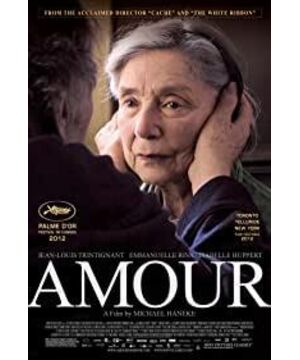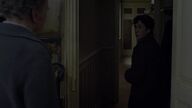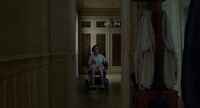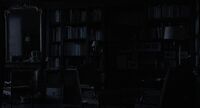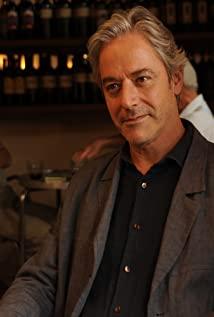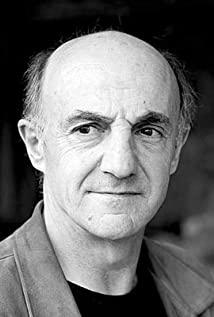Compared to paintings with heavy ink and color, sometimes I appreciate sketches or sketches composed of random and simple lines. To some people, they look like oil paintings, with rich colors and ingenuity in composition. , Can give the most direct impact and shock to the vision and the soul, but they don’t know that sometimes a few seemingly inadvertent intentions can provide the viewer with a thorough and clear perspective, which is often hidden under the breezy appearance. With the creator’s great wisdom and big mind, the feelings or thoughts expressed will also appear to be particularly deep, wise and moving, and Haneke’s "Love", in my opinion, is like a picture with little modification and the most common use. The paintings outlined by the lines and elegant colors seem common and easy to understand, but they are full of deep meaning and moving. The story revolves around a couple of elderly musicians. They have the same hobbies and topics. They support each other and rely on each other during the long journey of life. The ordinary life is comfortable and ordinary, but the pain comes quietly, but it is cruel. Because of the failure of the operation, Anne’s condition deteriorated. Her busy and troubled daughter Eva had no time to take care of her. She could only be taken care of by the elderly George. How to proceed? Why is it called love? In Haneke’s always cold, restrained and quiet shots, he witnesses the cruelty and sadness in the helpless and impermanent reality. Most of the time, in the face of inevitable pain and incurable disasters, the seemingly inexplicable extreme actions may also be love. A strong expression of. The scheduling of the scenes and the switching of the shots, Hanek shows his skills even more in the confined space. Except for the concert at the beginning, all the focused scenes of the whole film are basically developed around the apartment. The lens is delicately transformed and symbolic. The integration of the plot and the picture, in the elegant, beautiful, sad and melancholy melody, two god-level actors Jean-Louis Trintignant and Emmanuelle Riva contributed the most brilliant performances. From their bodies, it can be said that nothing can be seen. The traces of deduction, whether it is body language or psychological changes, or delicate emotional expression, can be said to have achieved the most incisive perfection, and it is truly painful. Hanek's lens language is always full of silent pain and hurt in a calm and cold atmosphere, but even so, he will still be addicted to it. The shock of the cruel light and shadow aesthetics that reaches the bottom of my heart is really unforgettable. In many cases, only by experiencing loss and suffering can people learn to cherish and be grateful. Love has infinite profound and broad meaning. In the world of light and shadow, under the influence of optimism and positive consciousness, most of the time, we try to use positive and beautiful things as much as possible. Deeds or behaviors give the audience a deeper understanding of "love", while Hanek does the opposite, using a seemingly indifferent posture to create a cruel and heavy vortex, allowing love to bloom in sadness and sorrow. From Anne’s point of view, she lost her basic living ability at the beginning, and as her condition worsened uncontrollably, she completely lost her language ability and physical function. After being crushed by the pain step by step, she became a pitiful state of'non-self'. The wife's laborious care, began to be annoyed, sorrowful, self-blaming, and negative, and then gradually became discouraged, struggling helplessly in pain and unconsciousness. I don’t want myself to be a useless cumbersome, I don’t want to see my lover become emaciated, and I don’t want the beautiful image that stays in the lover’s mind to be replaced by the appearance of suffering, so I will be anxious, avoid taboos, suffer, and even give up. This is Anne's love. From the perspective of Georges, he watched his lover sinking into the quagmire of pain with more than enough energy, but he was powerless and even lost patience. Faced with the signal of extreme pain that his lover kept sending, Georges used the most cruel The way gave Anne the saddest love. Out of human considerations, many people don’t understand Georges’ decisive behavior, as if to get rid of the burden and burden, and feel too selfish or too cruel. As a human, Georges’ behavior may have a certain element that is really out of instinctual self-consideration. But what I see more is Georges' deep love for Anne. In "Love", there are several intriguing lens treatments, whether it is a long shot with a profound artistic conception, or a few oil painting slides inserted, or a momentary pause in the picture, or two unintentional doves. Breaking in, Hanek seems to want to provide the audience with a space and a way to calmly and deeply think or change their thinking, let go of their impetuous hearts, open their seemingly limited horizons, blend into the situation and feel the atmosphere, and read the intentions. Under the mask of cruel and indifference, there is a deep and touching pulse of warmth. Many people often say that tragedy can be more like a sharp sword to pierce people's hearts. Hanek uses this power to bring audiences to the heart. Another way of thinking about love, perhaps hidden behind death is a longer continuation of love, although it looks very bleak, very sad, very sad... In the face of this impermanent reality that is so cruel that people cannot see, Hanek In a unique way and style, it is a moving portrayal of another way of life for love.
View more about
Amour reviews


